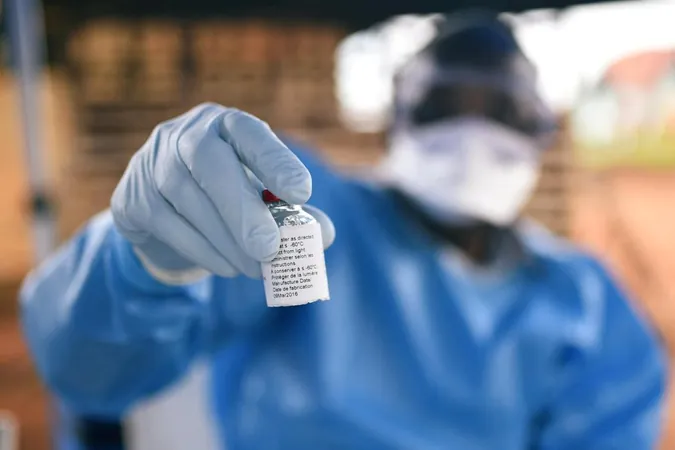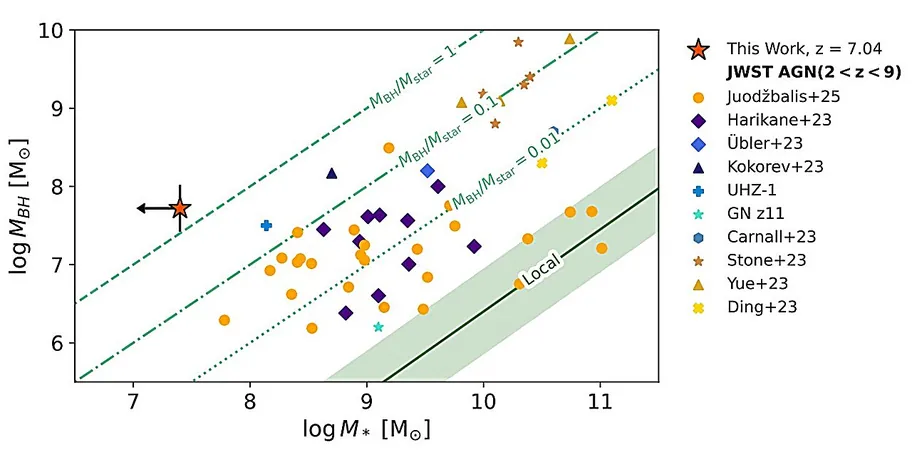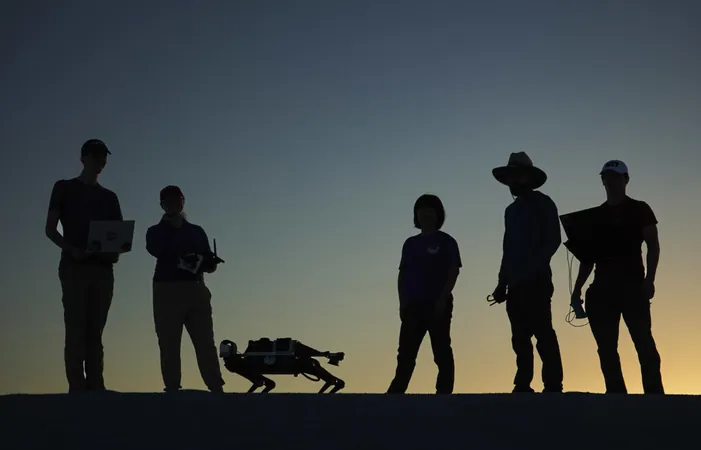
Ebola Outbreak in Congo: A Crucial Test for Global Health Response Amid U.S. Aid Cuts
2025-09-05
Author: Daniel
Congo Faces New Ebola Threat
In a shocking turn of events, the Democratic Republic of Congo (DRC) has declared an outbreak of Ebola virus disease in the south-central Kasai province, with alarming reports of 28 suspected cases and 15 fatalities, including four health workers.
The outbreak was traced back to a 34-year-old pregnant woman who was admitted to the hospital on August 20, only to succumb to the virus five days later. The Congolese public health ministry noted that additional cases emerged in the Bulape and Mweka health zones, where patients exhibited severe symptoms like fever, vomiting, diarrhea, and hemorrhaging.
Identification of the Virus Variants
Testing at the National Institute of Biomedical Research in Kinshasa identified the strain as Ebola Zaire, as confirmed by the World Health Organization (WHO) on September 4.
Challenges from Funding Cuts
Congo’s health services are already strained due to ongoing conflicts and a significant reduction in U.S. funding, which has previously supported efforts to tackle outbreaks of mpox, cholera, and measles. Experts are voicing concerns that this funding withdrawal will hinder crucial Ebola response efforts.
Dr. Anne Rimoin, a prominent epidemiologist from UCLA, emphasized the critical nature of U.S. involvement, stating, "Without U.S. engagement, fewer partners will bear the burden, potentially slowing the response and costing lives." In previous outbreaks, U.S. support through the CDC and USAID has been instrumental in training local epidemiologists, enhancing lab capacities, and providing vaccines.
Rapid Local Response and Global Support
Amid these challenges, the local health teams have demonstrated remarkable resilience by quickly sequencing the virus and launching an immediate response. Dr. Rimoin commended the DRC’s rapid action in disseminating crucial data.
The WHO has deployed a national rapid response team equipped with two tons of protective gear and medical supplies to Kasai. However, the remote Bulape area is notoriously difficult to access, often requiring a full day of travel.
Professor Mohamed Janabi, WHO’s regional director for Africa, expressed a strong commitment to quickly curtailing the virus’s spread, highlighting collaboration with Congolese health authorities.
Understanding Ebola's Transmission
Ebola spreads through contact with the bodily fluids of infected individuals, making protective measures essential for health workers. WHO officials warn that as transmission continues, new cases are likely.
Preparedness and Historical Context
Fortunately, Congo holds significant stockpiles of treatments, including around 2,000 doses of the Ervebo Ebola vaccine, set to be administered to contacts and frontline workers. The last outbreak in 2022 was controlled within three months. Historically, Kasai province has previously encountered Ebola cases in 2007 and 2008, with the country enduring 15 outbreaks since the virus's discovery in 1976.
A Warning of Ongoing Vulnerability
As Dr. Patrick Otim from the WHO pointed out, this latest outbreak serves as a stark reminder of the ongoing vulnerabilities faced by communities across Africa. Despite the high case fatality rate of nearly 64%, he reassured the public that there is no reason to panic, citing the extensive capacity and expertise developed in health emergency responses.
As the world watches closely, this outbreak could redefine global health responses in the face of diminishing resources.




 Brasil (PT)
Brasil (PT)
 Canada (EN)
Canada (EN)
 Chile (ES)
Chile (ES)
 Česko (CS)
Česko (CS)
 대한민국 (KO)
대한민국 (KO)
 España (ES)
España (ES)
 France (FR)
France (FR)
 Hong Kong (EN)
Hong Kong (EN)
 Italia (IT)
Italia (IT)
 日本 (JA)
日本 (JA)
 Magyarország (HU)
Magyarország (HU)
 Norge (NO)
Norge (NO)
 Polska (PL)
Polska (PL)
 Schweiz (DE)
Schweiz (DE)
 Singapore (EN)
Singapore (EN)
 Sverige (SV)
Sverige (SV)
 Suomi (FI)
Suomi (FI)
 Türkiye (TR)
Türkiye (TR)
 الإمارات العربية المتحدة (AR)
الإمارات العربية المتحدة (AR)